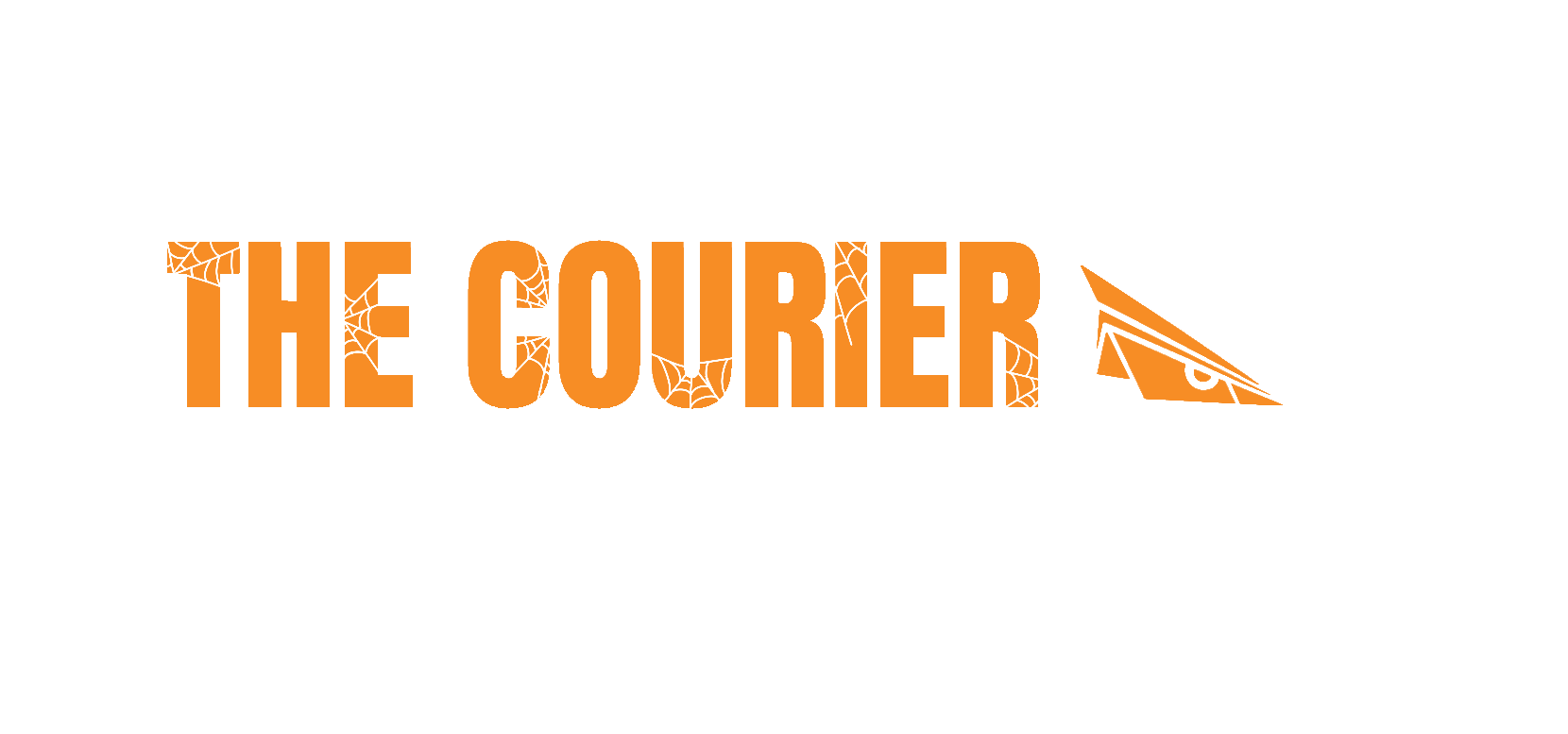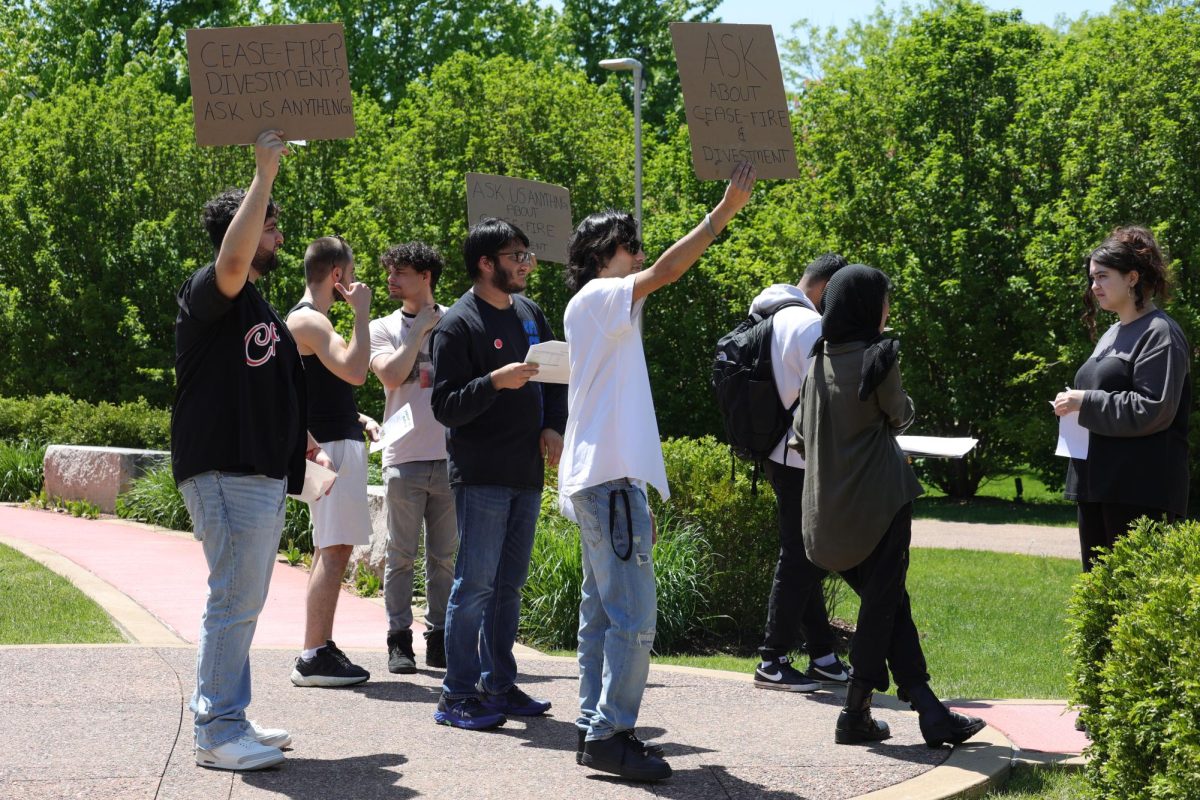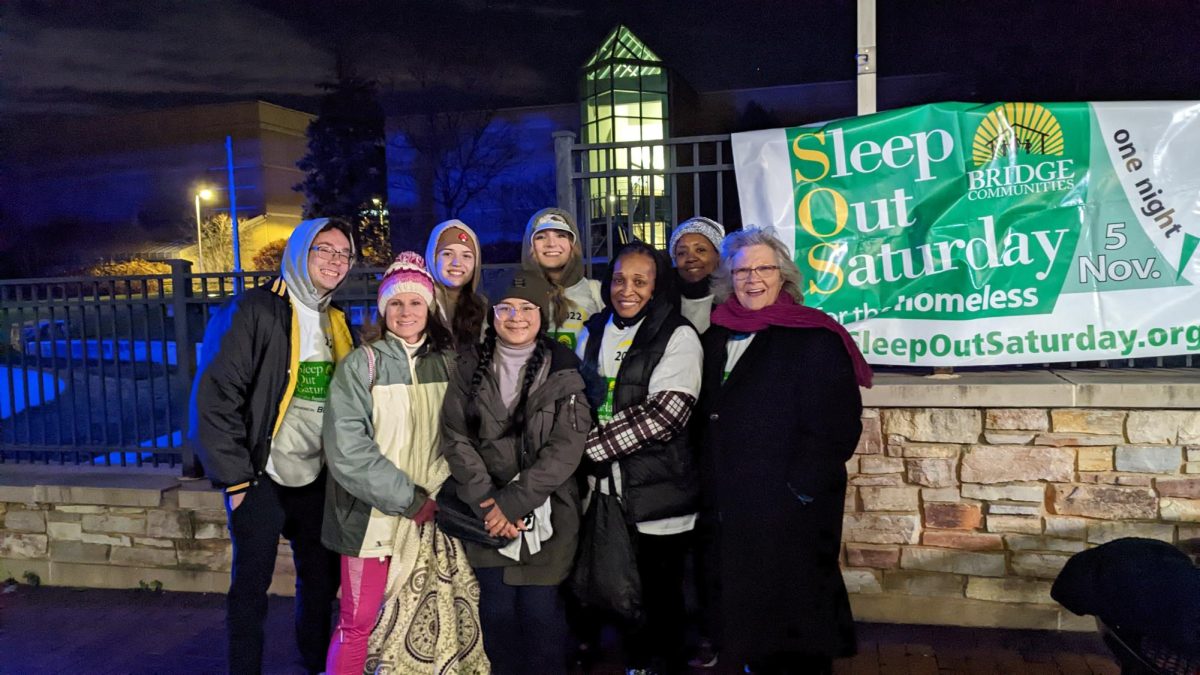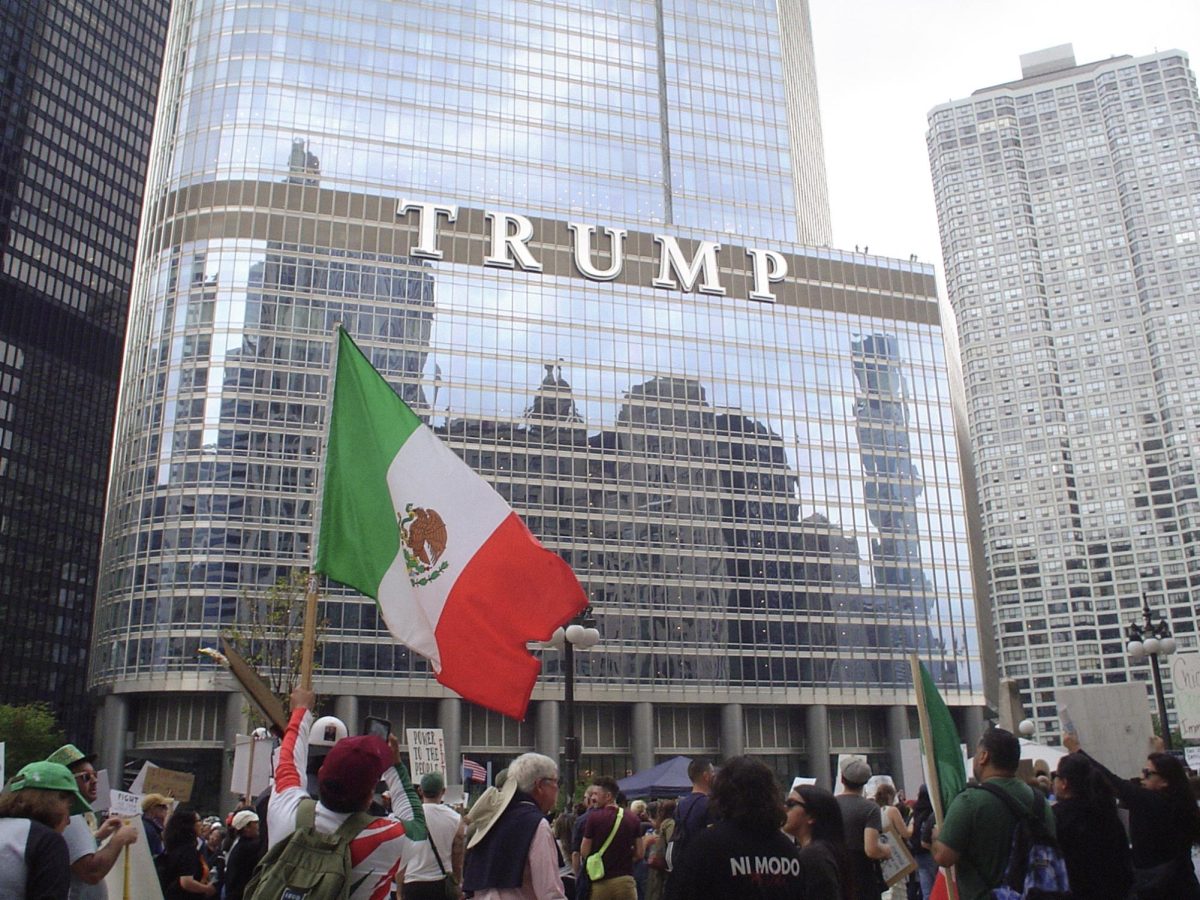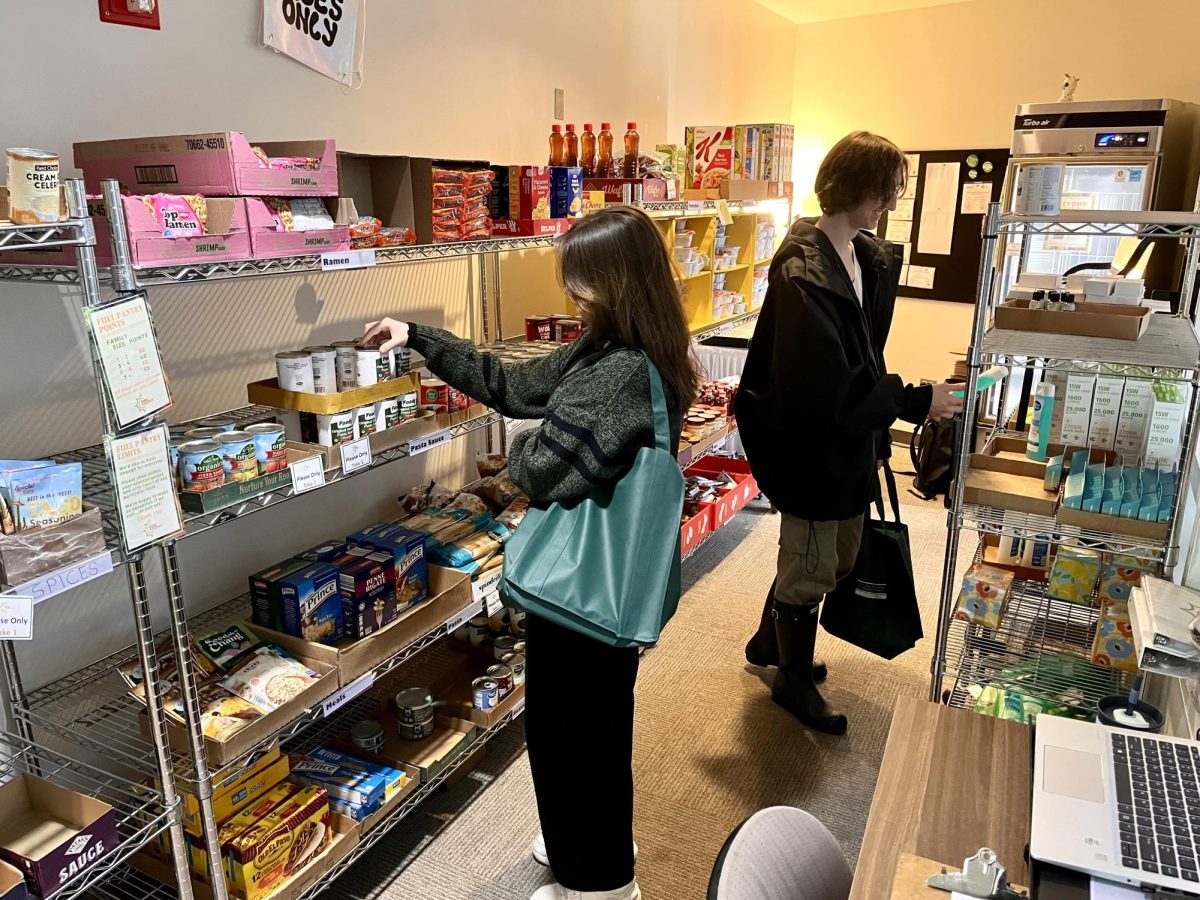Following the growth of Israel divestment initiatives in universities across the world, COD students have begun grassroots actions to confront COD’s investments. Omer Mohsin, who is a political science major and a member of Model UN, was one of the students to begin the initiative with an open-invite meeting in late April.
“I had the pleasure of meeting and bouncing ideas with a very many intelligent and passionate individuals,” Mohsin said. “Ever since then, the COD cease-fire and divestment movement has only grown larger and larger in number, all due in part to dedicated students who realize that the time for effective change starts now.”
A primary catalyst for the group was seeing divestment initiatives gain traction at universities around the world. Divestment is a part of the global Boycott, Divest, Sanction movement, which is led by Palestinians and their allies to utilize economic and political pressure to stop what they see as Israel’s unethical policies in occupied Palestinian territories. It specifically calls for states and companies to withdraw their investments, donations and finances from Israel’s government, military or private entities that are complicit in systems of apartheid, illegal settlements or war crimes.
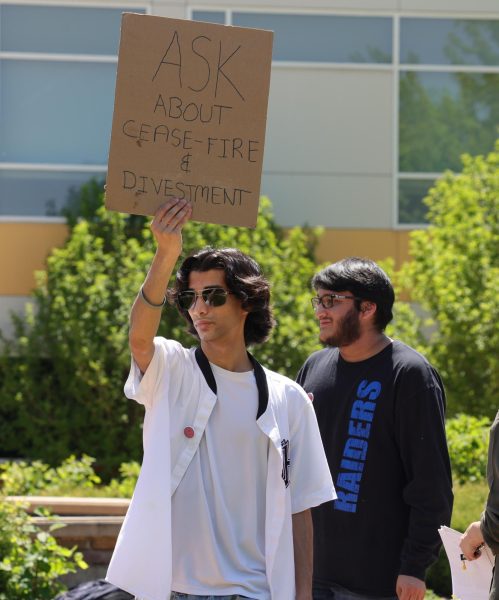
With the efforts of other university students in mind, computer science student James Lamoureux stated that the COD students hope to create a culture of transparency and community input on investments at COD.
“The overall purpose of a divestment campaign on college campuses is to not only ask that specific investments that go towards Israel be changed towards more ethical investments, but it’s also asking for a culture of transparency in large-scale investments,” Lamoureux said. “For the board of trustees to fundamentally understand that many students and community members are frustrated that our tuition money is going towards an unethical genocide. I believe that COD has a large community network, and we have the resources and information to create a successful divestment campaign.”
With this in mind, a group of COD students began their efforts. One of them was architecture student, Sami Syed, who worked with his classmate to send proposal letters about a divestment initiative to several student organizations on campus.
“Within an hour, we received a response from a club member and were invited to a UNICEF [club] meeting,” Syed said. “From there, Jack and I connected with many other students who shared our concerns. We spoke with students in leadership roles and from various clubs at COD.”
They led an open teach-in at the BIC Fountain on May 8. With a basket of candy, cease-fire pins, and cardboard signs inviting people to ask questions, the students presented highlighted print-outs of COD’s investment portfolio. They researched COD’s investment into corporations, calculated the amount of money being invested, and looked at other university’s divestment plans.
“Despite my concerns, the process of organizing the teach-in went more smoothly than expected,” Syed said. “Within the group, it seemed everyone understood the urgency and the reality of what is happening in Gaza. The creation of an Instagram account, the teach-in, formulating our mission statement and finding credible sources were all driven by people united in their desire to end the killing of human lives.”
The investment report from the April 2024 board of trustees agenda packet quantified COD’s total investments in various securities and corporate entities during the month of March. Of those companies, the students researched whether there were proven connections to illegal acts, war crimes or apartheid systems occurring in Palestine. One such company they found was General Dynamics, the fifth-largest weapons manufacturer in the world. They explained that it creates the metal casing for the missiles that the Israeli military most commonly uses in Gaza.

The students published a list of other companies and unethical connections on their Linktree, codstudentforceasefire. With concerns about genocidal acts and illegal area bombardment occurring in Gaza, the student felt that divesting from companies like General Dynamics would be an effective step toward peace.
Mohsin explained why university students around the world find divestment to be a necessary step towards change and their personal responsibility, as their tuition funds university investment.
“In the case of COD, we contribute our personal earnings through tuition for a better education,” Mohsin said. “This issue is personal because it offends me to see our funds being used in ways that contradict my values, particularly in funding organizations profiting from manufacturing bomb shells or bulldozing Palestinian homes. As a student at COD, I have the right to be involved with how the school wishes to invest funds earned by me.”
Students also seek to follow the historical precedent of anti-war protests in the 1960s and protests against the apartheid in South Africa during the ‘90s, students express humanitarian concerns over the genocide in Gaza. Lamoureux mentioned that student protests are a natural escalation after students have tried formal channels to meet with the administration and were met with silence.
“Many students throughout this country and even abroad have resorted towards creating encampments,” Lamoureux said. “This is usually done after seven-plus months of protests, of sit-ins, of asking the board of trustees for meetings, and we could see a culture of these protest methods escalating because certain student demands are not being met, such as being transparent about the college’s investment portfolio.”
One such encampment was at the University of Chicago, which lasted nine days from April 29 to May 7. It ended with a police raid, and though students’ requests weren’t fully negotiated, the administration and students formed an agreement as part of the Gaza Scholars at Risk program, for UChicago to provide scholarships to eight students from Palestine, as reparations for the destruction of every university in Gaza by Israeli airstrikes.
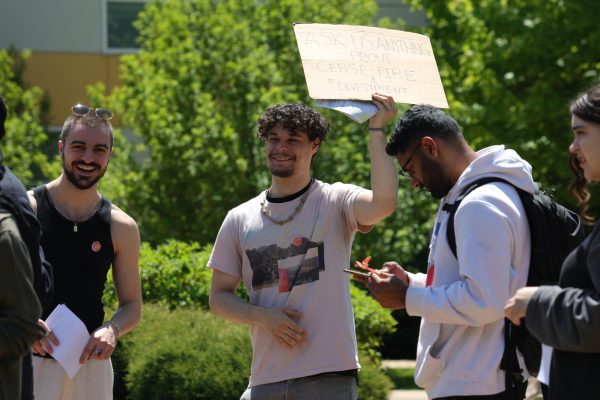
This acknowledgment of scholasticide was one of the goals of the UChicago encampment, as Lamoureux observed during his time there. He also described how the encampments encouraged learning and community building.
“I’ve also seen how the encampment was made a community space. Multiple faith leaders, Muslim, Christian, Jewish, all came to do services,” Lamoureux said. “We had multiple professors come to do talks on settler colonialism, on land grabs in the West Bank, and on more nuanced issues of the Israel-Palestine conflict. What I saw at the encampment were hundreds of committed students and community members working towards a specific direct action campaign, which is U of Chicago to stop investing in companies that send money, tech, capital, weapons towards the state of Israel and the IDF [Israel Defense Forces].”
This is a driving motivation for the students, as was echoed by COD student Jack Nunkovich, who originally worked with Syed to write letters about the issue to student leaders.
“College of DuPage has always been advertised as a safe place of learning for all students regardless of background or life experience,” Nunkovich said. “For that school to use our tuition and tax dollars to openly fund a company that is profiting off of an ethnic cleansing feels like a slap across the face from a school who preaches community and compassion. Many students have friends or family with ties to Palestine, so for the school to use our money to continue the occupation of their land is a huge issue for many students.”
Mohsin reflected on how as the students planned the events, it was encouraging to see faculty have a positive response and also attend the teach-in to speak to them.
“The one constant throughout the mission has been the iron-clad support that faculty has provided for me. In fact, it’s because of my connection with my professors that sprouted the idea of a cease-fire movement at COD,” Mohsin said. “These sentiments are only encapsulated by the fact that when professors and students work in tandem, there is nothing that can’t be done.”
Sameena Parveen, an advisor for student clubs on campus, spoke to students at the teach-in. She remarked on how supporting the student’s activism is important as an aspect of higher learning.
“Thinking critically, learning about the world around them, educating themselves about global affairs and how it impacts every being,” Parveen said. “They are wise and under the tutelage of some of the best educators here at COD.”
Mohsin also discussed how as a political science student, he recognizes the importance of exercising civic rights for political change. He stated that it’s important for students to be educated and proactive in important humanitarian issues.
“I wholeheartedly believe that there is an intrinsic good in pursuing knowledge and searching for the truth- this is the nature of student activism,” Mohsin said. “As advocates, our efficacy is grounded to our capacity for change, regardless of marginalization or censorship. Lasting change occurs in activism when there is an emphasis on effective and empathetic dialogue between students.”
The students also reflected on how witnessing student protests that were repressed made them reproachful at first.
“Initially, I was concerned about potential adverse outcomes, especially after seeing what has been happening on campuses nationwide with students and their school administrators,” Syed said. “But for me, the killing of over 30,000 lives couldn’t stop me from continuing.”
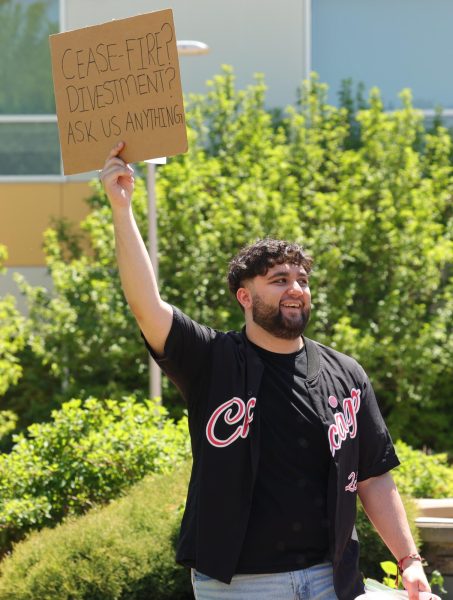
Nunkovich described the importance of student activism.
“Students are the voice of the future. We are the workers, politicians and teachers of the upcoming generation,” Nunkovich said. “We have seen several instances of students having their First Amendment rights violated, but that should only make our voices louder. We are responsible for building a world where all voices are accepted and heard and the world works for all of its inhabitants.”
Parveen also commented on how she hopes the COD administration reacts constructively.
“I pray their voices are not censored but are met with honesty and appreciation,” Parveen said. “I am hopeful that COD leaders will take this opportunity to understand why these students are speaking up and provide them a safe and inclusive space to voice their concerns.”
The students expressed that their next steps are to speak with the Board of Trustees and mutually formulate realistic divestment plans. More information and updates about the developing initiatives can be found through their Linktree and Instagram, @codstudents4ceasefire.
